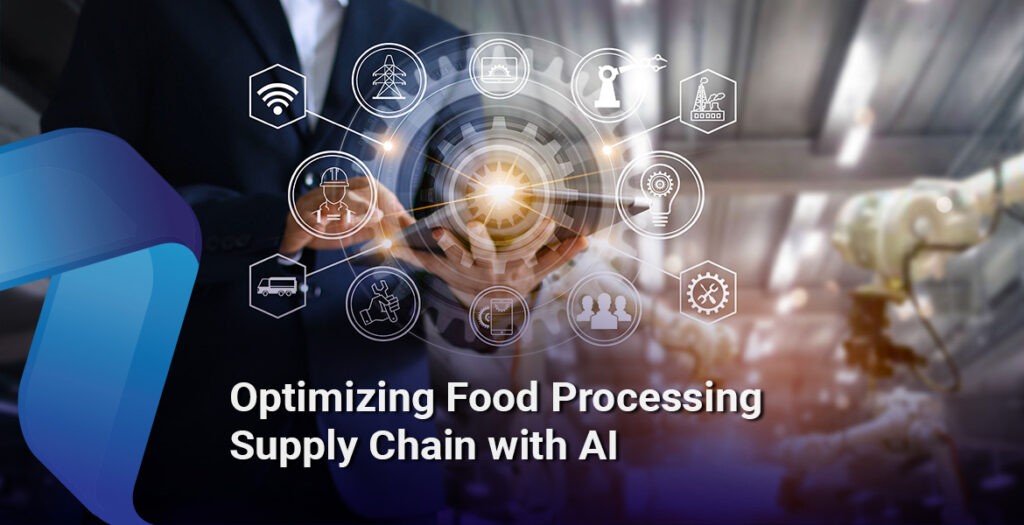Let us start with some startling facts on food wastage.
- Of the global food production, around 33-50% is never consumed, and this wasted food is valued at over $1 trillion
- Research by Boston Consulting Group claims that by 2030 annual food loss and waste will hit 2.1 billion tons worth $1.5 trillion
- The World Food Program suggests that over 135 million people suffer from acute hunger. With the COVID-19 pandemic still around, the number is set to double soon
These figures are stunning, and the food processing sector has tremendous market inefficiencies and supply chain concerns more than other industries. With food waste in trillions of dollars and the figure inflating by the day, the food sector must turn to innovation and digitization to reverse this tragic trend.
Demand for food will almost certainly outweigh supply as the world’s population grows. In such a situation, digitization, leveraging technologies such as Artificial Intelligence (AI), Machine Learning (ML), the Internet of Things (IoT), and others, appears to be the only realistic way out of the vicious cycle of production and waste. Food supply chain management requires systemic changes from production and processing to retail to utilize resources more efficiently.
Trash to Treasure – Building a Zero-waste Supply Chain Model
To build a sustainable supply chain, it is crucial to have a 360-degree view of your chain and the ability to consolidate diverse functions. This process must rethink packaging, reconsider sourcing strategy, production processes, distribution systems, and build regulated supply chain methods that help control wastage. Businesses worldwide are using advanced AI algorithms to help them optimize deliveries and reduce carbon footprint. In addition, vital data on performances and risks, updated in real-time, is essential to ensure the development of stable and sustainable supply chains.
Leverage Smart Technology
Food waste occurs at various stages, but it is most noticeable during production and consumption. The problem is more evident in developing countries at the production level, whereas it is more prevalent in wealthy countries at the consumption level. The lack of visibility into food loss and waste across the value chain is a cause of concern. While consumers are not alone in their lack of information, food service companies, restaurants, etc. are all impacted.
Having the right infrastructure and proper visibility can go a long way toward alleviating the problem of food waste. Digital supply chain technologies can improve the supply-demand dynamic, make supply-chain transactions more resourceful and frictionless, manage loss and waste, and generate dynamic pricing, allowing products to travel through the system before they expire.
The Impact of AI on the Food Industry
Companies in the food processing industry have begun to use AI-enabled supply chains to streamline operations and provide better customer experiences.
Overproduction and standing inventory can be reduced or eliminated using an integrated business planning tool. With complex algorithms, the tool can estimate client demand and prevent the overproduction of items. If your company manufactures perishable products like dairy, for example, you can use historical data, point-of-sale data, purchase habits, and other information to figure out how many packs of milk or packages of yogurt needs to be made. You won’t have to leave your goods on a warehouse shelf or a grocery store shelf to expire. AI can help you better understand how many things, how quickly, and where you can sell them using demand sensing capabilities.
Processes can be further streamlined throughout the chain to maximize how food is handled with stakeholders having access to crucial data shared across integrated systems. For example, cold storage solutions are required to obtain the most value out of a substandard batch of vegetables. This early warning system and information exchange can help stakeholders plan ahead and limit waste. AI-assisted sorting and grading systems are crucial to decreasing food waste across the supply chain.
AI has primarily addressed a significant challenge of food processing and storage. Besides, AI has also substantially impacted automating sorting, identifying food anomalies, and adhering to numerous food compliances.
Transform into a Smart Enterprise with MOURI Tech
The use of AI and machine learning in the food manufacturing sector is transforming the industry, allowing for fewer human errors and less waste of plentiful products. In addition to reducing storage and transportation costs, AI enables faster service, voice search, and personalized orders.
If you are curious, have a question, or need a consultation on leveraging AI in the food industry, contact us to know more from our Data Scientists.













